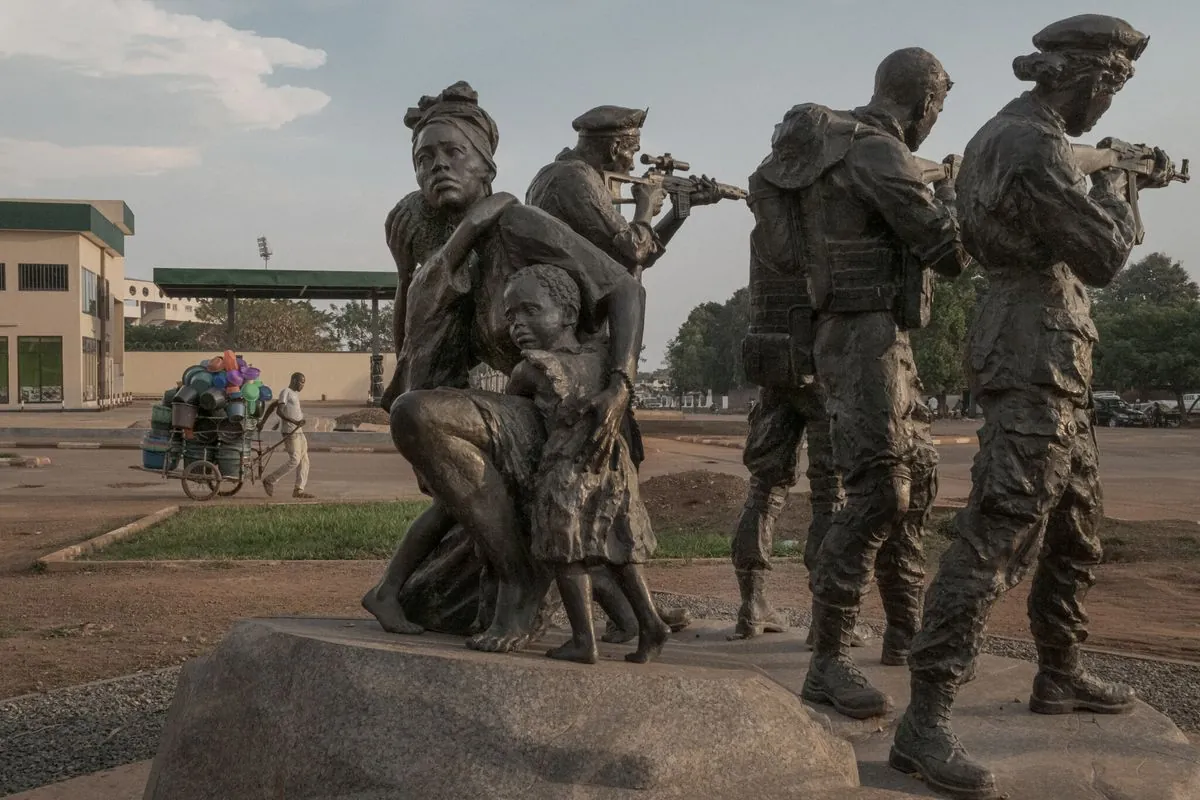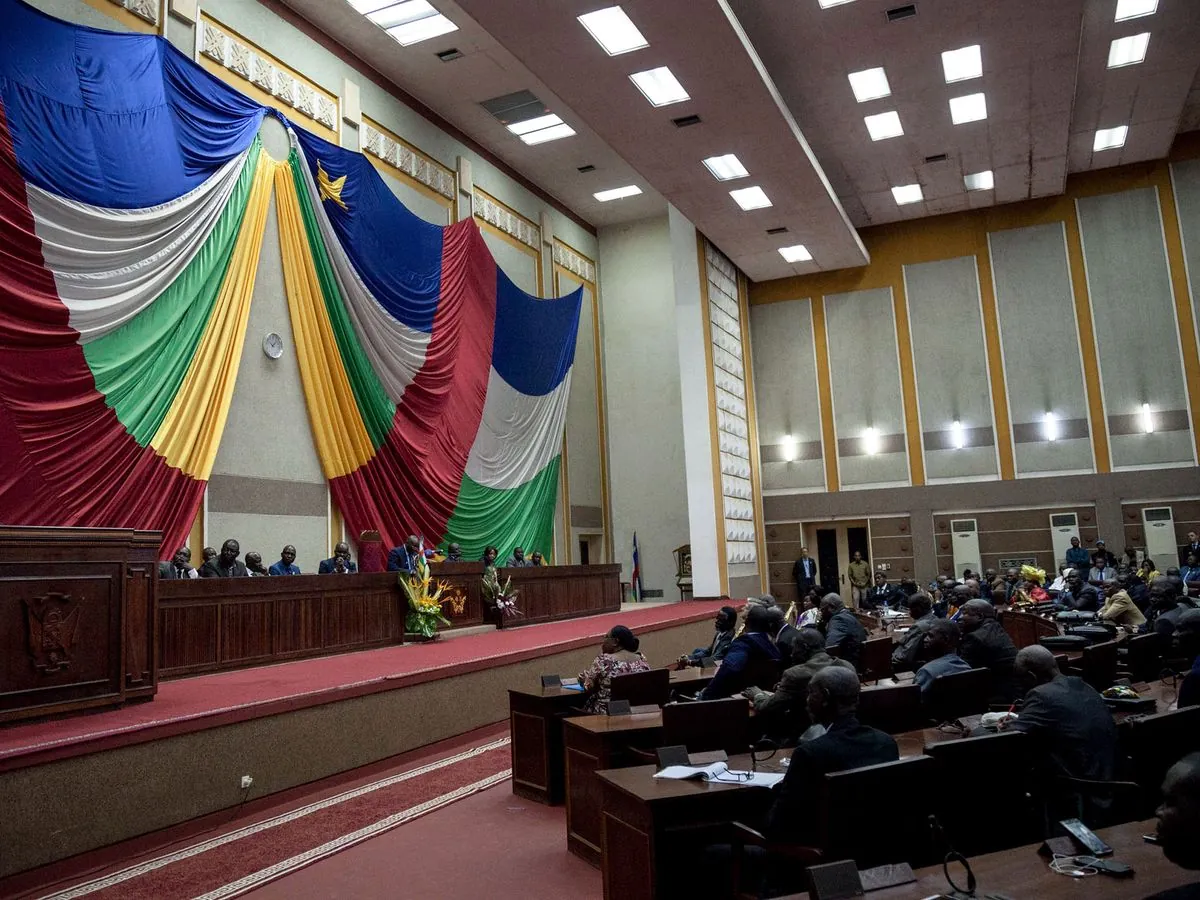US-Russia Rivalry Intensifies in Central African Republic
A US security firm's deal with the Central African Republic sparks tensions amid ongoing Russian influence. The situation reflects a broader power struggle between Washington and Moscow across Africa.

In the heart of Africa, a geopolitical chess game is unfolding between the United States and Russia, with the Central African Republic (CAR) as the latest battleground. This development comes in the wake of Russian mercenary leader Yevgeny Prigozhin's demise, highlighting the complex web of international interests in the region.
The Central African Republic, a nation rich in resources yet plagued by poverty and conflict, has become a focal point of this power struggle. Since gaining independence from France in 1960, CAR has experienced numerous coups and periods of instability, making it vulnerable to external influences.
Recently, a US-based security firm, Bancroft Global Development, entered into an agreement with the CAR government. This move has intensified the already delicate balance of power in the country, where Russian mercenaries, particularly the Wagner Group, have maintained a significant presence since around 2017.

The Wagner Group's involvement in CAR has been controversial. While credited with repelling a rebel attack on the capital Bangui in 2021, the group has faced severe criticism for alleged human rights abuses. According to watchdog organization The Sentry, these mercenaries have been accused of training the CAR army in torture tactics.
Michael Stock, founder of Bancroft, revealed in an interview that CAR President Faustin-Archange Touadera sought their services due to perceived underperformance by Russian partners. This decision reflects the desire of African nations to diversify their security partnerships and make independent choices.
However, the introduction of Bancroft has not been without consequences. Reports of aggression towards American citizens and rare anti-US protests in Bangui underscore the tensions arising from this shift in allegiances.
"The government has no problem with Americans and those denied entry lacked proper paperwork."
The situation in CAR is emblematic of a larger trend across the African continent. Russia has been aggressively expanding its military cooperation in the region, often displacing traditional Western allies. The country's ambassador to CAR, Alexander Bikantov, announced plans to refurbish a military base near Bangui, aiming to improve the country's security.
As this power struggle unfolds, it's crucial to consider the impact on CAR's population of approximately 5.4 million. The country faces significant challenges, including one of the world's lowest life expectancies at about 53 years and a literacy rate of only 37.4%. These stark realities underscore the urgent need for genuine support and development, rather than geopolitical maneuvering.
The outcome of this US-Russia rivalry in CAR and across Africa remains uncertain. However, it's clear that African nations are increasingly asserting their right to choose their own partners and chart their own course in the complex landscape of international relations.


































